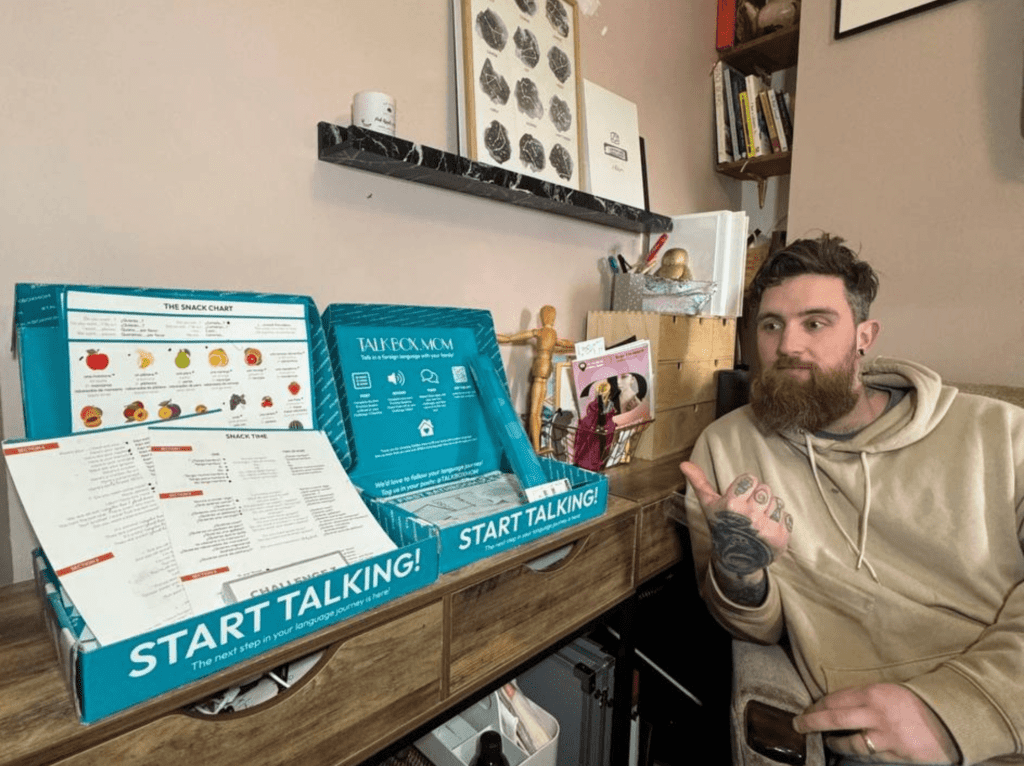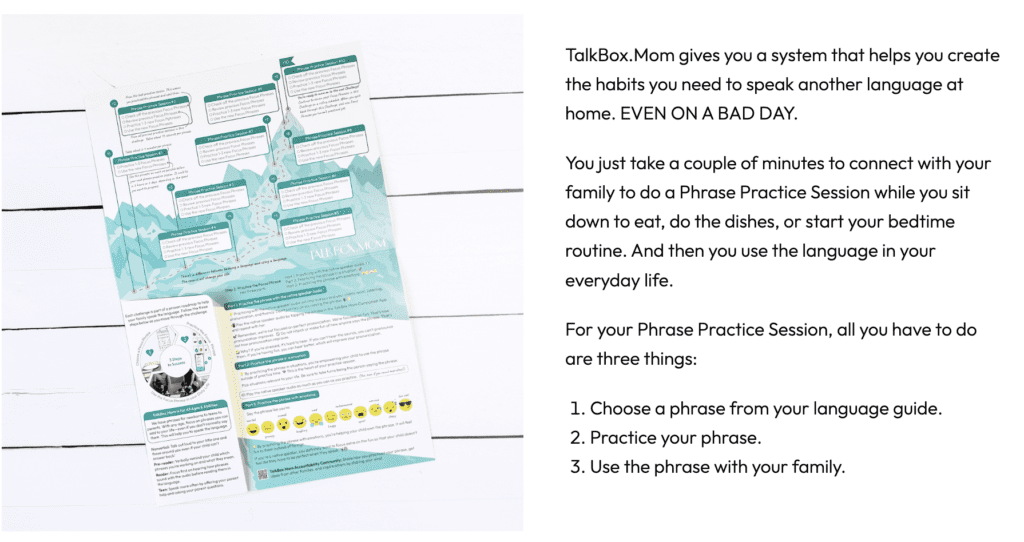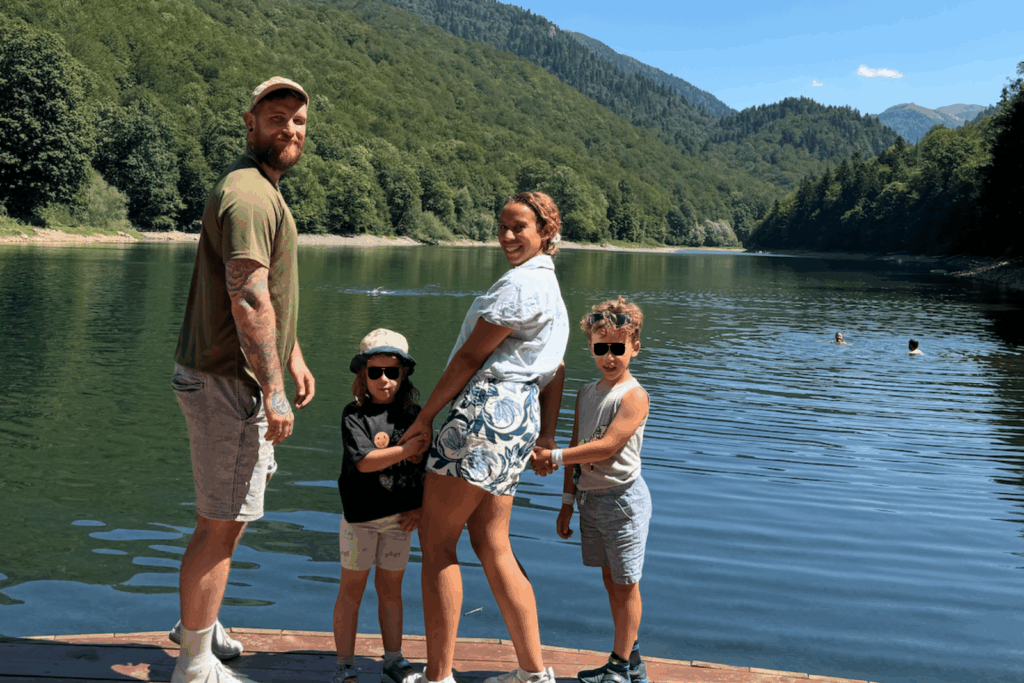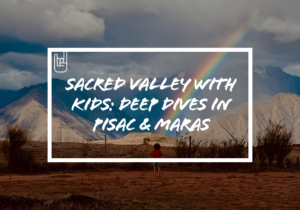Learning Spanish for Beginners
Learning Spanish as a family has been an exciting, sometimes chaotic, but ultimately rewarding experience. We’re currently working through Challenge 3 of our first TalkBox.Mom box, focusing on kitchen and snack-related vocabulary, and while we’ve spent longer on it than planned, we’re realising that language learning isn’t about rushing—it’s about consistent, real-world practice.
If you’re looking for tips on learning Spanish for beginners, especially as a family, here’s what we’ve learned so far!
Found this useful? Help keep our family travel blog ad-free by buying us a coffee.
Why We Chose TalkBox.Mom for Learning Spanish
Before we started learning Spanish as a family, I had some experience with the language. Years ago, before meeting Tania, I could hold basic conversations and even woke up at 4 AM to do language exchanges with people from Colombia. But over time, life got busy, and my Spanish faded.
When we decided to pick it up again as a family, we wanted something practical and immersive, rather than just memorising words from an app. That’s where TalkBox.Mom stood out. It’s designed to help families start speaking Spanish from day one, using real-world phrases instead of isolated vocabulary, a true learning Spanish for beginners guide.
Now, we’re deep into our first box, which focuses on everyday words and phrases in the kitchen. It’s amazing how much Spanish naturally integrates into our daily routines when we label objects and start using the words without overthinking them.
Making Spanish a Part of Everyday Life
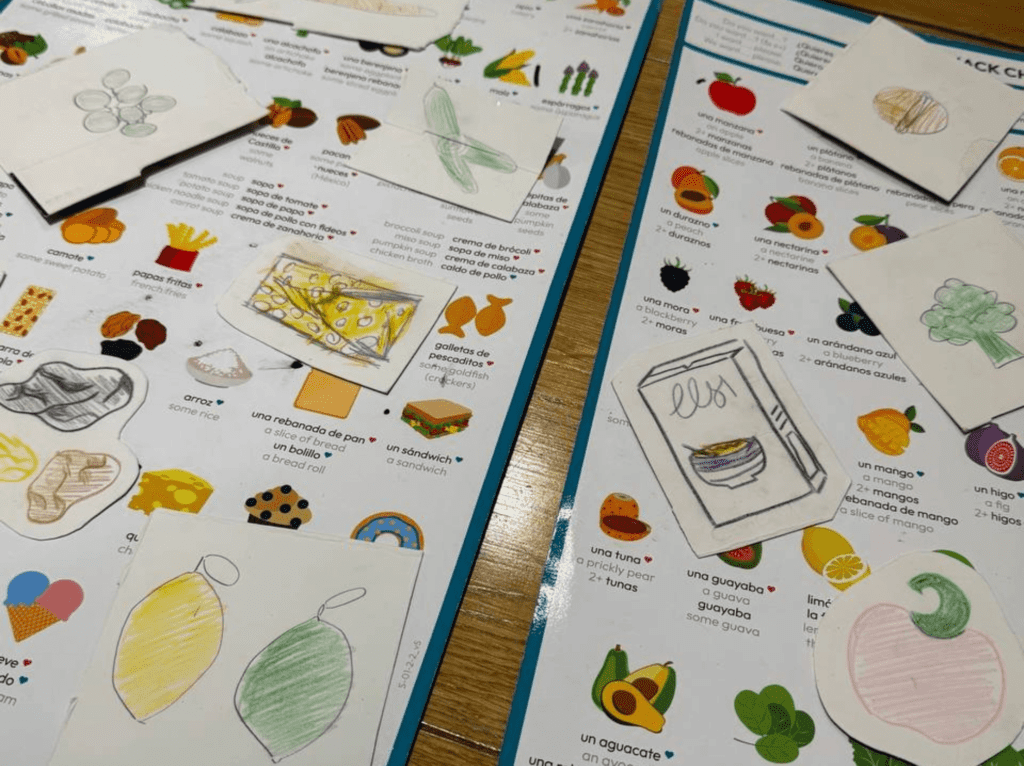
One of the biggest advantages of TalkBox.Mom is that it encourages learning through immersion. Instead of memorising random vocabulary lists, we’ve been placing word cards on real objects around the kitchen.
Now, the kids instantly recognise words like “microonda” (microwave) without even thinking about it. The goal isn’t to sit down and “study” Spanish but to absorb it naturally. We’ve even caught them saying phrases like “¡Está sabrosa!” (It’s yummy!) at dinner, which is proof that the learning is working—even if they don’t always reply in full sentences yet!
Fun and Interactive Ways We’re Learning Spanish
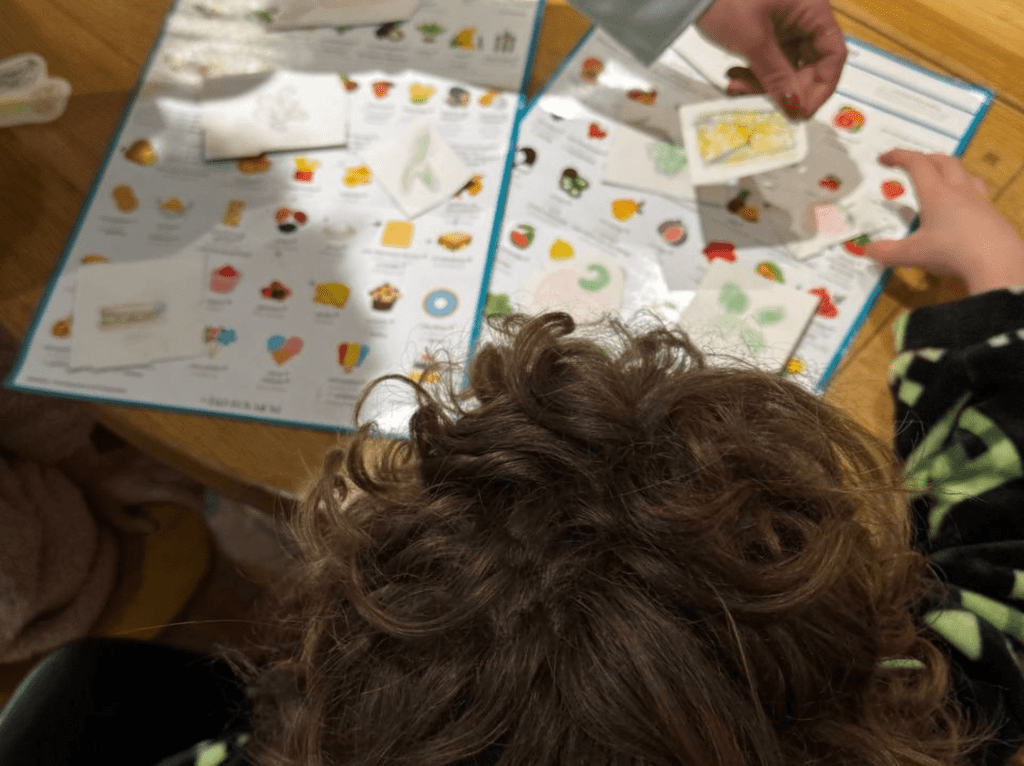
Keeping kids engaged while learning a language can be tricky, so we’ve introduced games and interactive activities to make it fun. These have been the biggest game-changers:
Flashcard Drawing Game
Instead of using printed flashcards, we’ve made our own by drawing different food items and objects. We then do a quick-fire guessing game, where one person holds up a drawing, and the others have to name it in Spanish as fast as they can.
Hide-and-Seek Vocabulary
We take the flashcards and hide them around the kitchen. When the kids find one, they have to say what it is in Spanish before they can keep it. The one with the most cards at the end wins. It turns a simple learning exercise into an exciting game!
Funny Voices Challenge
To keep things engaging, we practice saying new words in different voices, robot, opera singer, pirate, whispering, shouting, etc. It makes repetition feel fresh and fun while reinforcing pronunciation.
These small, interactive activities have been key to keeping the kids engaged and making learning Spanish a natural part of our day, esopailly when you starting to learn spanish as a beginner.
Top Tip: let your kids pick what voice they want to do…Well as long as you can understand what is actually being said.
Challenges We’ve Faced & What We’ve Learned
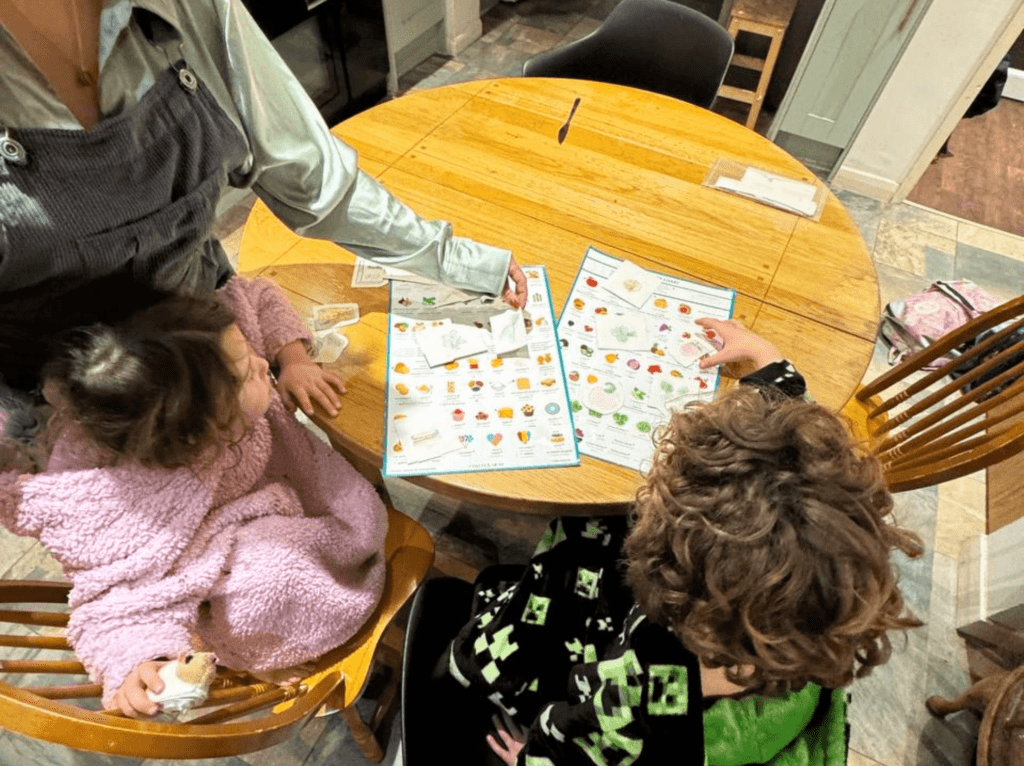
Like any new skill, learning Spanish for beginners comes with ups and downs. Some days, the kids are eager to practice, and other days, they lose interest. Here’s what we’ve learned so far:
- Repetition is key. The more we naturally use Spanish in our daily life, the more it sticks. Even if it feels like we’re moving slowly, reinforcing the same phrases helps solidify the learning.
- Understanding comes before speaking. While the kids aren’t always speaking in full Spanish sentences yet, they definitely understand more than they let on. We’ve noticed that they respond appropriately when we ask them questions in Spanish, even if they answer in English.
- Consistency beats speed. Initially, we thought we’d move through the challenges quickly, but sticking with one topic longer has reinforced what we’ve learned. It’s better to have a solid foundation than to rush ahead and forget everything later. Though we still are trying to keep to between 10 and 15 days per challenge
Next Steps in Our Spanish Journey
We’re excited to move on to the next challenge while continuing to reinforce what we’ve already learned. The next goal? Bringing Spanish into more areas of our home and using it beyond mealtime conversations.
To keep things fresh, we’re planning to:
✔️ Label more objects around the house (not just in the kitchen).
✔️ Introduce short Spanish conversations during daily routines.
✔️ Keep playing our flashcard and vocabulary games.
Learning Spanish for beginners isn’t just about memorising words—it’s about making small, daily habits that help the language become second nature.
Final Thoughts
Learning Spanish as a family has been one of the most rewarding things we’ve done together. Even when it feels like progress is slow, the little moments—like hearing the kids say “¡Está sabrosa!”—remind us that it’s all coming together.
If you’re thinking about learning Spanish for beginners, especially as a family, our biggest advice is to have fun with it. Play games, be consistent, and don’t stress about perfection—because every little bit of progress adds up.
Are you learning Spanish too? Let us know your best tips in the comments!

